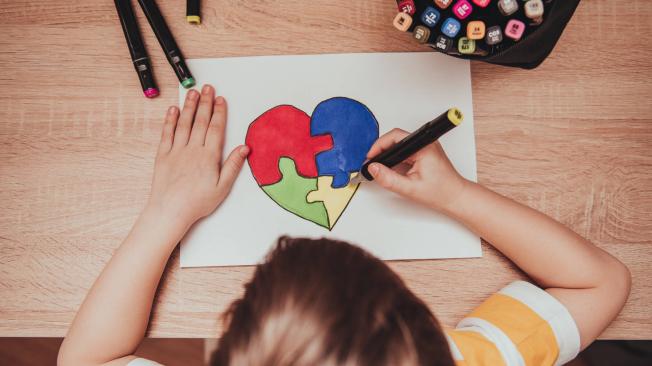Táchira is the first state to approve a bill for the Protection of Autistic Children

Discrimination, high costs of medications and therapies, in addition to the lack of specialized education, are part of the problems faced by families of children diagnosed with autism spectrum disorder -ASD- in the country. Due to this, the Legislative Council of Táchira unanimously approved the presentation of the bill for the protection of autistic children in the region. Representative Paula Sierra, mother of a child with autism, led this initiative that promises to transform the lives of many families.
«We have already been blessed to approve the presentation of the bill for the protection of autistic children in the state of Táchira. This is an initiative that was born from the first days of April and was presented to the plenary session on April 16. The reception by the deputies was wonderful, without any opposition to the immediate approval of the initiative,” said the deputy.
What kind of benefit will Autistic children have?
The bill, which now enters the discussion phase, will be presented to civil society. It will have the participation of specialists, doctors, therapists and families. It is hoped to build comprehensive and beneficial legislation for both children and society in general.
Among the benefits that this law will bring, improvements in the educational, therapeutic, social, public and private framework stand out. «The idea is to be able to adapt the national law to our state, with the possibilities and needs that we have. This will allow both education, medical care and contributions from organizations to be guaranteed within a regularity that is no longer traumatic and forced,” explained the deputy.
Eradicating discrimination against autistic children in educational entities is the priority
Discrimination in educational entities, both public and private, is one of the problems that this law seeks to eradicate. The representative said that “it is vital to generate mechanisms that allow educational training so that not knowing how to approach children with autism is no longer an allegation.”
Statistics show an exponential increase in autism cases, both regionally and globally. “This goes hand in hand with greater visibility of the cases and the observation of international and national organizations,” said Sierra.
With this approval, the state of Táchira takes a significant step towards the protection and support of autistic children and their families.
Facing autism in the face of adversity
Lucero Pinto is the aunt of Estefany, a girl diagnosed with autism spectrum disorder type 3. That is, she requires continuous support since her verbal and non-verbal communication is practically non-existent. Part of the daily dynamics at home is based on caring for Estefany who, although she is already 15 years old, requires the observation and care of a younger child.
At a very young age she was diagnosed with autism spectrum disorder. One of the difficulties is finding the treatment and therapies that Estefany requires for her adaptation. Although he has attended several equine therapy sessions, he had to leave them due to the difficulties the family faces in moving from one place to another.
«To take her to the therapies it is necessary to take her from Cordero to San Cristóbal, we don’t have a car, so we have to take the bus, but it is a very long journey in which the girl becomes desperate. It is very difficult to keep her calm on the journey,” Lucero said.
Added to this is the diet that Estefany must maintain. A diet without sugar, gluten, dairy, corn or artificial ingredients. In addition to the medications required according to your treatment.
Discrimination and education
Estefany began her schooling a few years ago in a public institution in the municipality where she lives. However, he does not attend classes, he does not have contact with other children, he does not receive an accurate education due to his condition.
«We took her and enrolled her in school, the first days we stayed with her to support the teacher. At the end of the week the teacher said that she did not have the opportunity to pay attention to the girl. “He said he would bring the activities to the house, he went a couple of times but he never came back,” said his aunt.
This is just one of the cases of children with ASD. The incredible thing is that Estefany’s story is reflected in the majority of children who have this diagnosis. The story of Paula Sierra, the representative who presented the protection bill, is similar. The need for support in the face of discrimination, financial expense, treatment and specialized care became a common point that hopes to be addressed through this law.
Independent journalism needs the support of its readers to continue and ensure that the uncomfortable news they don’t want you to read remains within your reach. Today, with your support, we will continue working hard for censorship-free journalism!
